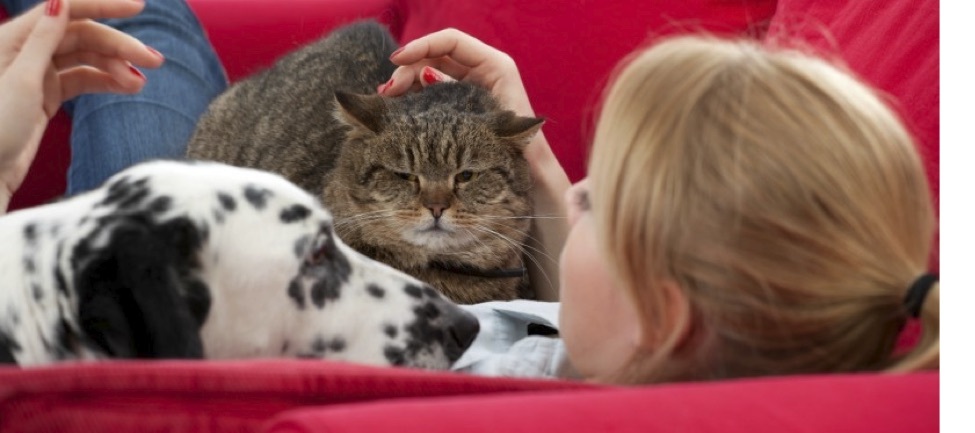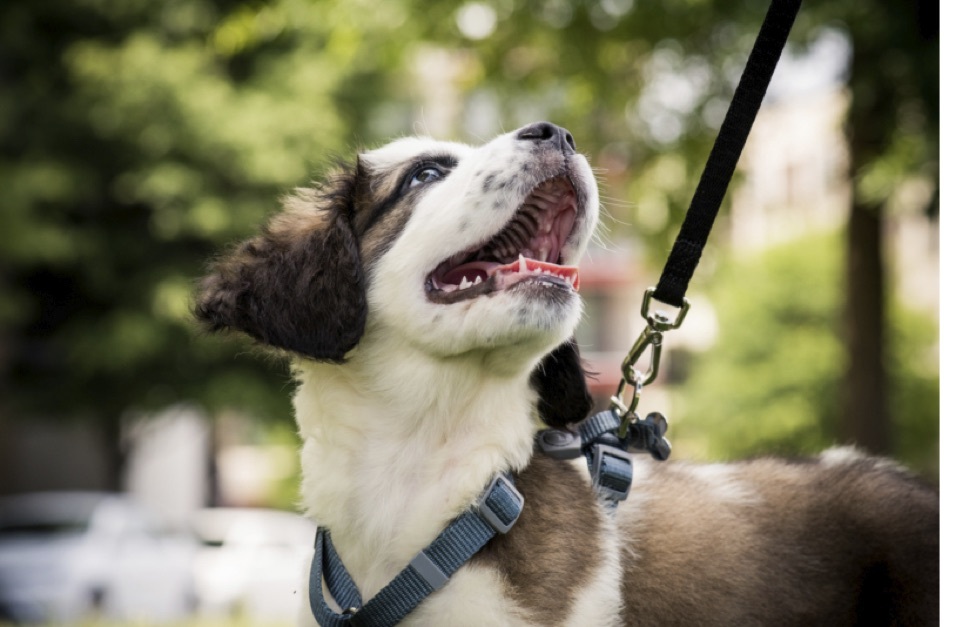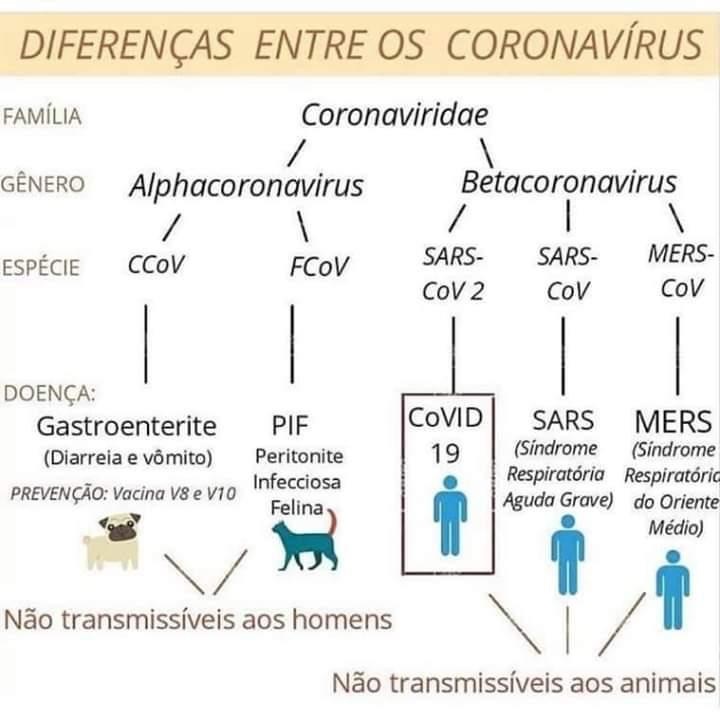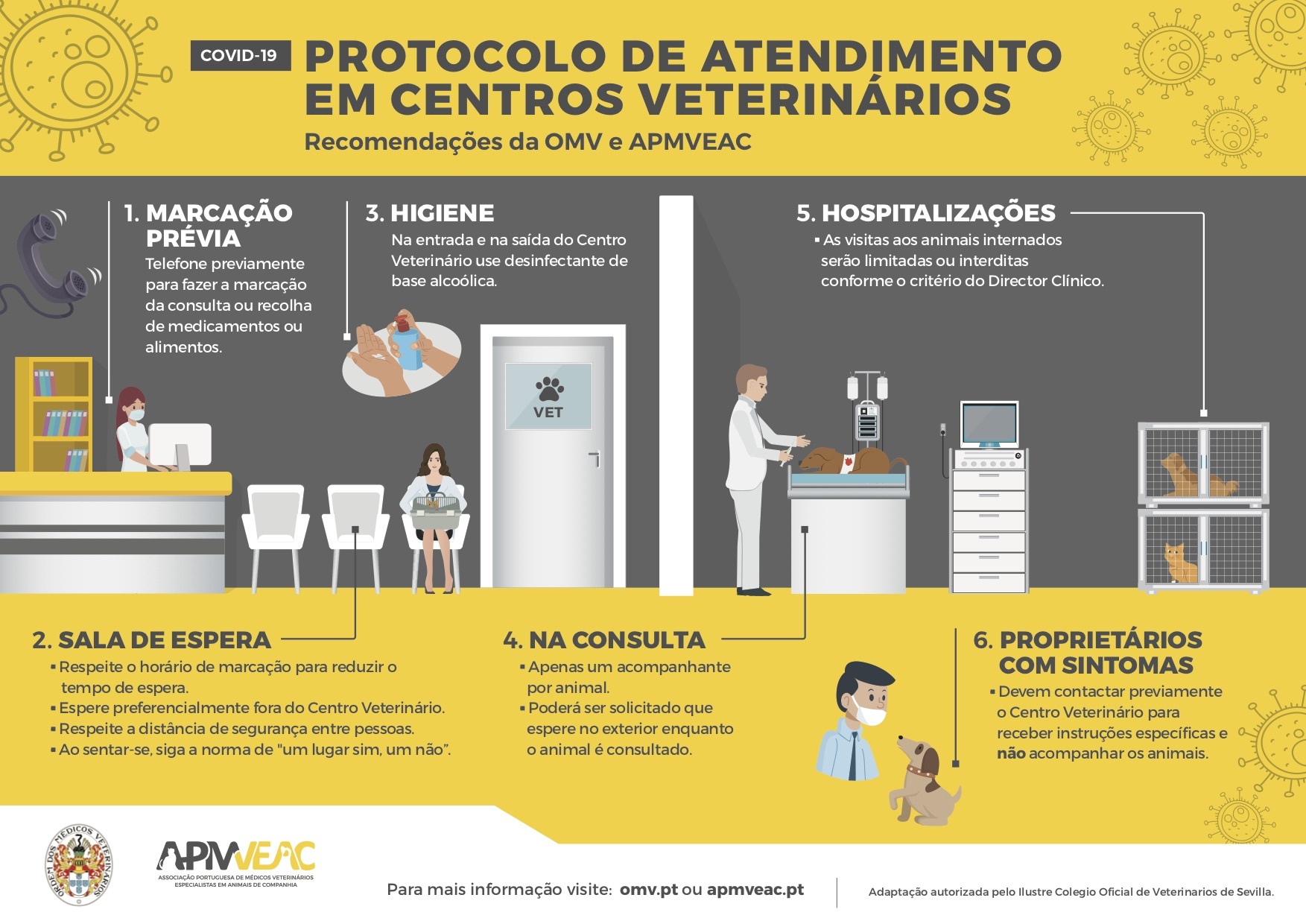Restelo Veterinary Practice - ResteloVet Covid-19
Emergency COVID-19

The safety of our team and our customers is a priority, which is why we have adopted exceptional measures, in line with the recommendations of the Order of Veterinary Doctors and the General Directorate of Health, aiming to allow safe access to essential and urgent veterinary services.
March, 26 Update
Animals and Coronavirus Disease 2019 (COVID-19) | Notice from "Centers for Disease Control and Prevention (USA)"
Key Points
• Coronaviruses are a large family of viruses. Some cause illness in people and others cause illness in certain types of animals.
• Coronaviruses that infect animals can become able to infect people, but this is rare.
• We do not know the exact source of the current outbreak of coronavirus disease 2019 (COVID-19).
• We do not have evidence that companion animals, including pets, can spread COVID-19.
• We do not have evidence to suggest that imported animals or animal products imported pose a risk for spreading the 2019 novel coronavirus in the United States.
Coronaviruses are a large family of viruses. Some coronaviruses cause cold-like illnesses in people, while others cause illness in certain types of animals, such as cattle, camels, and bats. Some coronaviruses, such as canine and feline coronaviruses, only infect animals and do not infect humans.
Risk to people
The U.S. Centers for Disease Control and Prevention (CDC), the U. S. Department of Agriculture (USDA), and the U.S. Fish and Wildlife Service (FWS) play distinct but complementary roles in regulating the importation of live animals and animal products into the United States. CDC regulates animals and animal products that pose a threat to human health; USDA regulates animals and animal products that pose a threat to agriculture; and FWS regulates importation of endangered species and wildlife that can harm the health and welfare of humans, the interests of agriculture, horticulture, or forestry, and the welfare and survival of wildlife resources.
Some coronaviruses that infect animals have become able to infect humans and then spread between people, but this is rare. Severe acute respiratory syndrome (SARS) and Middle East respiratory syndrome (MERS) are examples of diseases caused by coronaviruses that originated in animals and spread to people. This is what is suspected to have happened with the virus that caused the current outbreak of COVID-19. However, we do not know the exact source of this virus. Public health officials and partners are working hard to identify the source of COVID-19. The first infections were linked to a live animal market, but the virus is now spreading from person to person. The coronavirus most similar to the virus causing COVID-19 is the one that causes SARS.
At this time, there is no evidence that companion animals, including pets, can spread COVID-19 or that they might be a source of infection in the United States.
Risk from imported animals and animal products
CDC does not have evidence to suggest that imported animals or animal products pose a risk for spreading COVID-19 in the United States.
How to stay healthy around animals
In the United States, there is no evidence to suggest that any animals, including pets, livestock, or wildlife, might be a source of COVID-19 infection at this time. However, because all animals can carry germs that can make people sick, it’s always a good idea to practice healthy habits around pets and other animals.
• Wash your hands after handling animals, their food, waste, or supplies.
• Practice good pet hygiene and clean up after pets properly.
• Take pets to the veterinarian regularly and talk to your veterinarian if you have questions about your pet’s health.
For more information, visit CDC’s Healthy Pets, Healthy People website.
Risk to pets
CDC has not received any reports of pets or other animals becoming sick with COVID-19. Further studies are needed to understand if and how different animals could be affected by COVID-19.
How to protect pets if you are sick
If you are sick with COVID-19 (either suspected or confirmed), you should restrict contact with pets and other animals, just like you would around other people. Although there have not been reports of pets or other animals becoming sick with COVID-19, it is still recommended that people sick with COVID-19 limit contact with animals until more information is known about the virus. This can help ensure both you and your animals stay healthy.
When possible, have another member of your household care for your animals while you are sick. Avoid contact with your pet including, petting, snuggling, being kissed or licked, and sharing food. If you must care for your pet or be around animals while you are sick, wash your hands before and after you interact with them. For more information visit: What to Do if You are Sick.
Reducao_de_Horario
We continue to serve our Clients and follow our 4-legged friends with all precautions and with a new schedule.
![]()
March, 24 Covid-19 Update
WSAVA Moves to Reassure Pet Owners: ‘No evidence that COVID-19 can be contracted from pets’

The outbreak of COVID-19 is causing fear and uncertainty. It is a also significant threat to companion animal welfare as some owners are concerned that pets could spread the virus. On our site we will share information and resources for use by our Clients.
The World Small Animal Veterinary Association (WSAVA) has moved to reassure pet owners following the news that a dog in Hong Kong, quarantined after it had tested positive for SARS- CoV-2, has died. The dog had been released after two weeks of quarantine having subsequently tested negative for the virus.
March 20, Covid-19 Update
Veterinary clinics will remain open
20 March, 2020

Following the measures announced by the Portuguese Government to contain the Covid-19 pandemic, there are still some exceptions to trade, services and circulation.
In order to guarantee the welfare of pets, the retail trade of pets and their food, in specialized stores, will remain open. In addition, veterinary clinics will also provide some services.
As for the exceptions that allow circulation, the companion animal tour for short periods is one of the measures planned.
March, 15 Covid-19 Update
Dear Customers
In view of the escalation of the spread of Covid-19 in Portugal, Clínica ResteloVet presents the following hygiene and precautionary measures, for the safety of all our Clients and Team:
We ask all Customers who intend to use our services to inform us in advance if they have any flu-like symptoms or if they have recently traveled,
In order to avoid crowding in the waiting room, we request that you make an appointment in advance by calling 213 011370 or by email info@restelovet.pt,
Animals must be accompanied by only one person,
During the treatment of the animal avoid the presence of the keeper, unless it is strictly necessary
If there is a crowd of people at the reception, we ask that you wait in the outside gallery,
We will avoid physical contact as much as possible, particularly with regards to greetings and keep a safety distance of 1 meter,
Before and after consultation the hands must be disinfected.
With regard to contact with animals you can consult the recommendations of World Small Animal Veterinary Association-WSAVA.
It should also be noted that according to the World Organization for Animal Health (OIE) there is no evidence that animals can be a source of transmission to other animals or humans.
We thank you in advance for the understanding and indispensable collaboration of our Clients.




